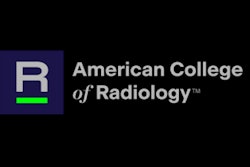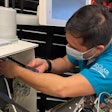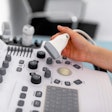Etta Pisano, MD, has been involved in leading many clinical trials, but a new initiative she was tapped to lead may help reach underserved areas faster.
Pisano is chief research officer for the American College of Radiology (ACR) and study chair of the Tomosynthesis Mammographic Imaging Screening Trial (TMIST). She is now also leading the Advancing Clinical Trials Readiness initiative, part of the Advanced Research Projects Agency for Health (ARPA-H).
“[The initiative] is focused on improving clinical trials, making them faster, better, cheaper, and more equitable to Americans,” she told AuntMinnie.com.
ARPA-H is a new federal health research and development organization within the U.S. Department of Health and Human Services. The agency aims to address systemic health challenges facing the U.S. by embracing novel public/private partnership arrangements.
The Advancing Clinical Trials Readiness initiative that Pisano is leading will build underserved and minority participation in clinical trials. This includes finding and onboarding rural facilities and facilities outside of large academic medical centers, such as emerging retail healthcare sites.
Pisano said she was approached in November to lead the ARPA-H initiative. She added that it’s a passion of hers to get clinical trials to diverse populations.
“I’ve been characterized as being impatient," she said. "The fact that it takes 17 years from the conception of a device to its widespread dissemination into the community and use by radiologists annoys me. This [initiative] is right up my alley and makes me very excited.”
Pisano is the first radiologist appointed to such a role in the ARPA-H and the field is continuing to grow its presence within the agency. The RSNA and the American College of Radiology (ACR) in 2024 announced that they have become designated spokes for the ARPA-H Experience Hub. This means the associations can serve as resources to ARPA-H performers focused on designing and developing imaging-related tools and platforms. Pisano said this is a testament to the importance of medical imaging in such initiatives.
“Radiology is a key part of healthcare. We touch almost every single patient,” she said. “A lot of the new technologies that need to be brought to market are imaging technologies. Radiology will be a big part of the future of healthcare and so consequently, a big part of what ARPA-H and myself care about.”
However, Pisano doesn’t intend to step down from her other duties.
“I’m only on loan part-time to ARPA-H for this role, and that’s fine with me. I love working for the ACR and doing what I do there and helping researchers access the services of the ACR,” she said.



















